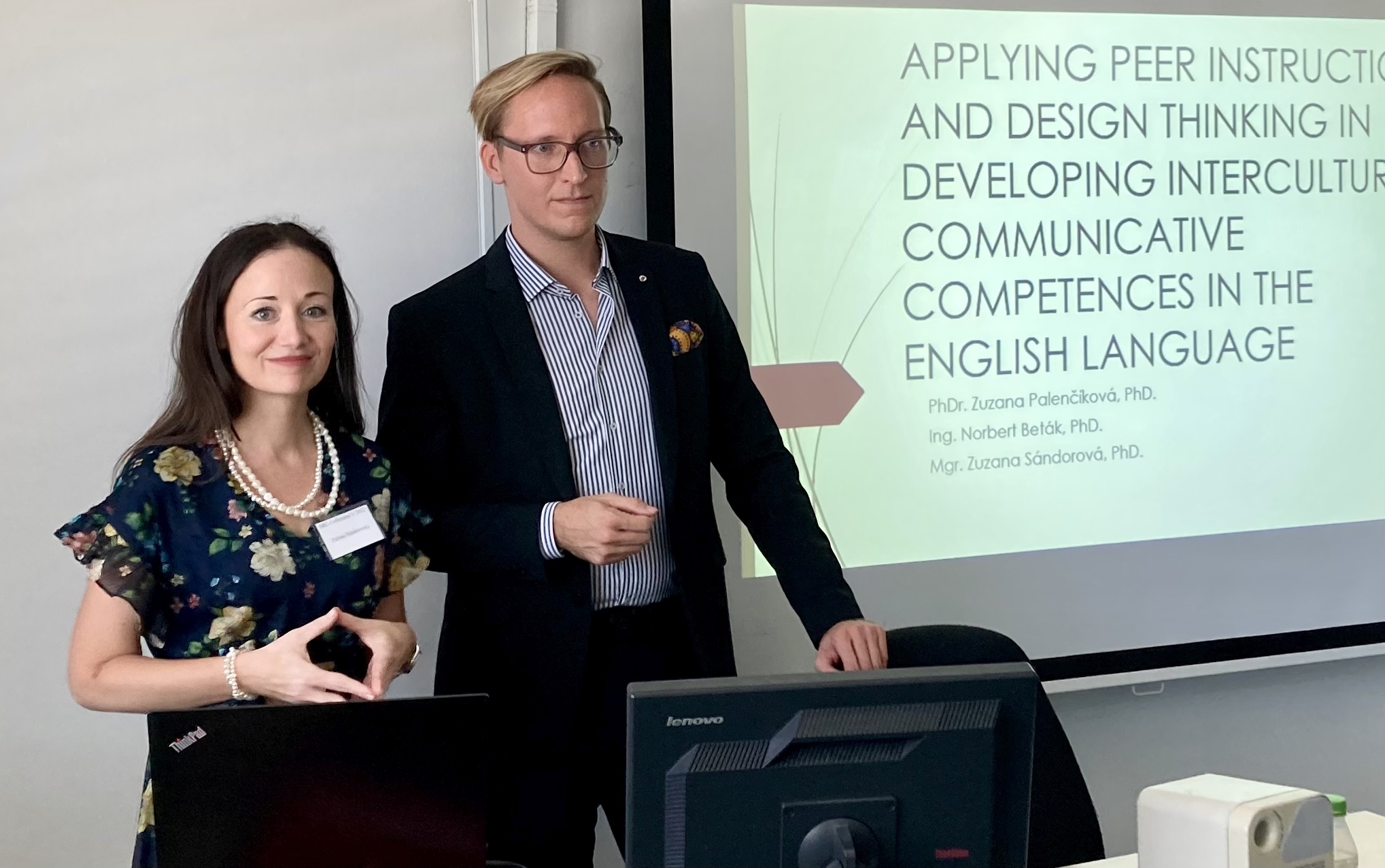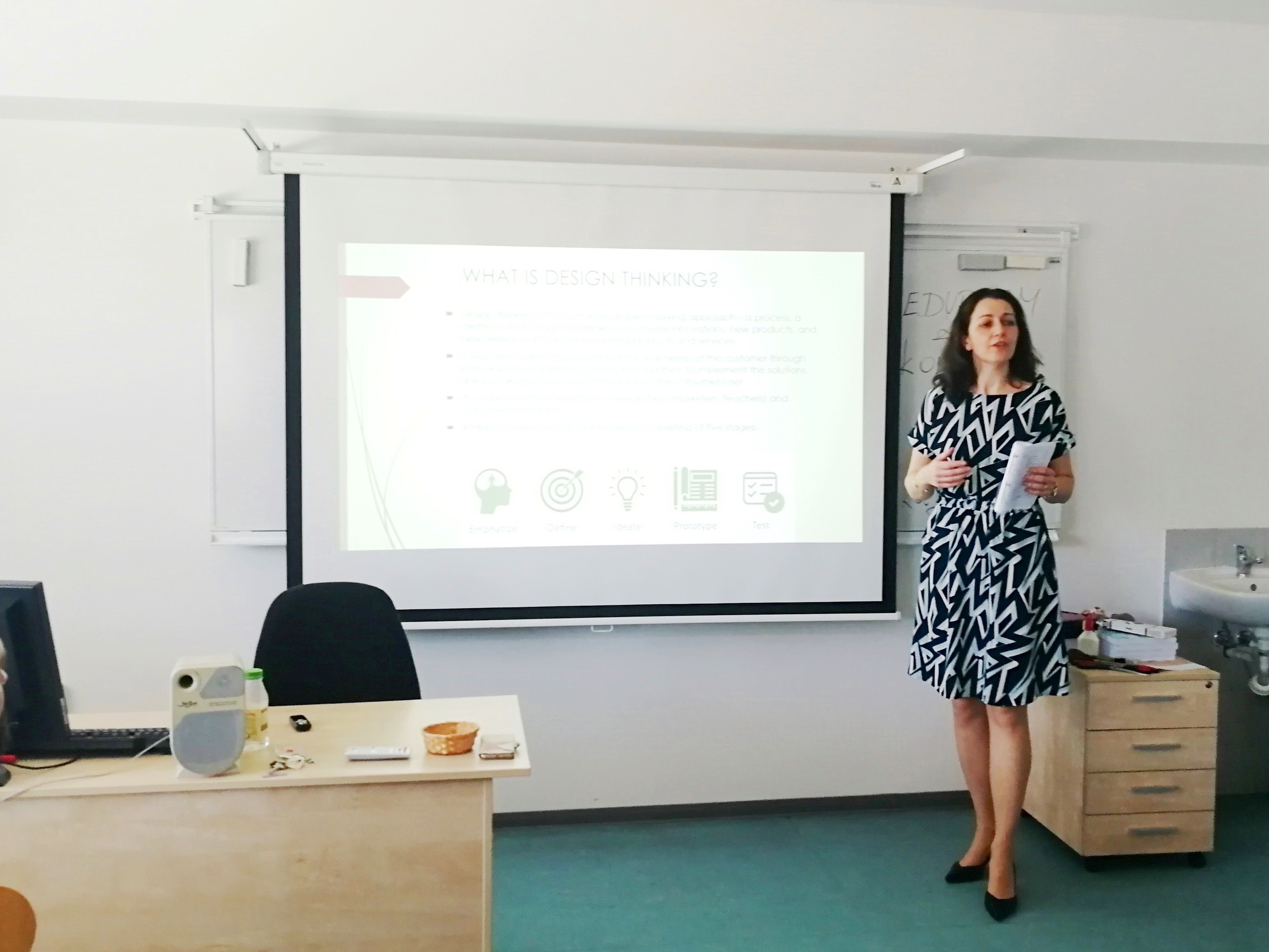Workshop on new interactive teaching methods
On 21 July, the Department of Tourism at the Faculty of Central European Studies of CPU and the Department of English Language and Culture at the Faculty of Education of CPU organized an international workshop.
Workshop was dealt with on the possibilities of using innovative teaching methods "Peer Instruction" and "Design Thinking" with a focus on subjects developing intercultural communication skills in the English language.
On 21 July, the Department of Tourism at the Faculty of Central European Studies of CPU and the Department of English Language and Culture at the Faculty of Education of CPU organized an international workshop on the possibilities of using innovative teaching methods "Peer Instruction" and "Design Thinking" with a focus on subjects developing intercultural communication skills in the English language.
During the workshop, the participants had the opportunity to get acquainted with the methodological approach of these teaching methods and also try out how these methods work in practice, especially in developing intercultural and communicative competencies in the English language.
The Peer instruction (PI) method is based on the so-called electronic voting, i.e. its elementary part consists of appropriately formulated questions. The cycle of the PI method consists of several consecutive steps, the most beneficial of which is the discussion, which is evoked in response to a relevant question among students. The PI method is one of the activating teaching methods, and various research and measurements have already established its effectiveness. At the workshop, we tried the so-called online voting, which is very simple and is implemented using smartphones or tablets. Since this method has the most significant application in developing receptive skills, i.e. reading and listening comprehension in foreign language teaching, the workshop participants had to answer and discuss a question after hearing a short video about cultural dimensions.
In the second part of the workshop, the participants were introduced to the method of design thinking (DT), developed by the American consulting company IDEO to look for product innovations that would be in demand in the market. This method was gradually implemented as a teaching method, first at American universities, and later spread to the world. The workshop introduced the Stanford design thinking model, which develops all the necessary skills for students to create innovative solutions in practice and find ideal resolutions in a wide variety of areas of the practice, including intercultural differences. DT helps students develop soft skills such as communication, empathy, teamwork, problem and conflict resolution, presentation skills, and many others and is, therefore, a universal teaching method suitable for language education. The method's interactive, collaborative and playful character makes it successful in teaching. The role of the teacher within DT is to create a stimulating environment in the classroom, which motivates and stimulates students to intensive communication and team cooperation in finding creative solutions to existing problems. This method is especially suitable for the current young university students, who prefer practical approaches to teaching rather than theoretical and descriptive methods.
The workshop participants tried the DT method for creating a tourism product in selected English-speaking countries concerning various cultural aspects. During the individual phases (such as brainstorming, a grouping of ideas, etc.), communication took place in English, whereby team members developed their communicative and intercultural skills. Finally, the individual groups presented their creative ideas with the help of posters.
The workshop was realized with the financial support of the project KEGA 020UKF-4/2020 Creation of a university textbook, and multimedia didactic support for subjects developing intercultural communication competencies in English for tourism concerning the needs of the practice.




PhDr. Zuzana Palenčíková, PhD. Head of the Department of Tourism, Faculty of Central European Studies, CPU
Ing. Norbert Beták, PhD. – Department of Tourism, Faculty of Central European Studies, CPU
Mgr. Zuzana Sándorová, PhD. – Department of English Language and Culture, Faculty of Education, CPU
Mgr. Orsolya Hegedüs, PhD. – Head of the Institute for Teacher Training, Faculty of Central European Studies, CPU




